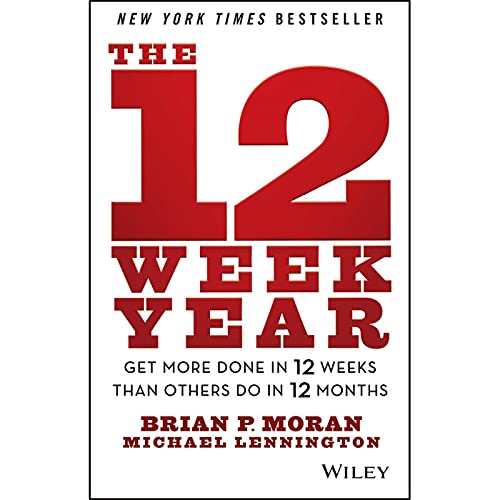In “12 Week Year” by Brian Moran and Michael Lennington, the authors present a revolutionary system for productivity and performance. Instead of focusing on annual goals, this method breaks down the year into 12-week periods, encouraging individuals and organizations to work with the urgency and focus of a year crammed into just three months. This summary highlights the key concepts, actionable steps, and practical advice found in the book to help you implement the 12-week-year system in your own life.
The Fundamentals of the 12 Week Year
The 12 Week Year system is designed to drastically improve your productivity by changing how you view and manage your time.
Understanding the Concept
- Shifts in Thinking: Traditional annual goals lack urgency, which often leads to procrastination. The 12-week year creates a sense of immediacy and helps in maintaining focus.
- Increased Productivity: By working in 12-week cycles, individuals can achieve more in less time, due to the increased frequency of setting and reviewing goals.
- Accountability and Ownership: The system emphasizes personal accountability and ownership of goals, leading to higher commitment levels.
Setting Your 12 Week Goals
- Specific and Achievable: Goals should be clear, measurable, and realistically achievable within 12 weeks.
- Alignment with Vision: Each goal must align with your broader life or business vision, ensuring that short-term efforts contribute to long-term aspirations.
- Balanced Areas of Focus: Goals should span different areas of life or business to maintain balance and prevent burnout.
Planning Your 12 Week Year
Effective planning is crucial for the success of the 12-week year. This phase involves identifying the tactics necessary to achieve your goals and organizing your weeks to optimize productivity.
Creating an Action Plan
- List of Tactics: Break down each goal into specific actions or tactics that need to be completed to achieve the goal.
- Prioritize Activities: Determine which tactics are most critical and assign them to the earliest weeks in your 12-week plan.
- Weekly Planning: Allocate time each week to review progress, adjust tactics, and plan for the coming week.
Time Management Strategies
- Time Blocking: Reserve blocks of time for focused work on your tactics, minimizing distractions and enhancing productivity.
- Buffer Time: Incorporate buffer time in your schedule for unexpected tasks or to catch up on planned activities.
- Review Sessions: Weekly and daily review sessions are crucial for adjusting your plan and ensuring alignment with your goals.
Executing Your 12 Week Plan
Execution is where your planning meets action. The success of the 12 Week Year lies in the consistent implementation of your plan.
Staying on Track
- Daily Execution: Focus on completing your planned tactics each day to make consistent progress towards your goals.
- Measure Progress: Regularly measure your progress against your goals to stay motivated and adjust tactics as needed.
- Accountability Meetings: Regular accountability meetings with a coach, mentor, or peer group can provide additional motivation and insight.
Overcoming Challenges
- Adapting to Changes: Be prepared to adapt your plan in response to unexpected challenges or opportunities.
- Maintaining Focus: Use techniques like visualization and affirmations to keep your goals and vision at the forefront of your mind.
- Balancing Flexibility and Discipline: While it’s important to stay flexible, maintaining discipline in executing your plan is key to achieving your goals.
Review and Adaptation
At the end of each 12-week cycle, it’s important to review your achievements and learn from your experiences.
Conducting a 12 Week Review
- Assess Your Results: Evaluate which goals were achieved, which weren’t, and why.
- Lessons Learned: Identify what worked, what didn’t, and how you can improve in the next cycle.
- Celebrate Successes: Acknowledging and celebrating your achievements can boost motivation for the next 12 Week Year.
Planning the Next 12 Weeks
- Set New Goals: Based on your review, set new goals for the next 12 weeks.
- Adjust Strategies: Use your insights from the last cycle to refine your strategies and tactics.
- Continuous Improvement: Aim for continuous improvement in your processes and results with each cycle.
Conclusion
The “12 Week Year” by Brian Moran and Michael Lennington offers a transformative approach to goal setting and achievement. By breaking down the year into more manageable, 12-week periods, you can increase your productivity, maintain focus, and achieve more in less time. Implementing the strategies outlined in this summary can help you to make significant progress toward your personal and professional goals.

